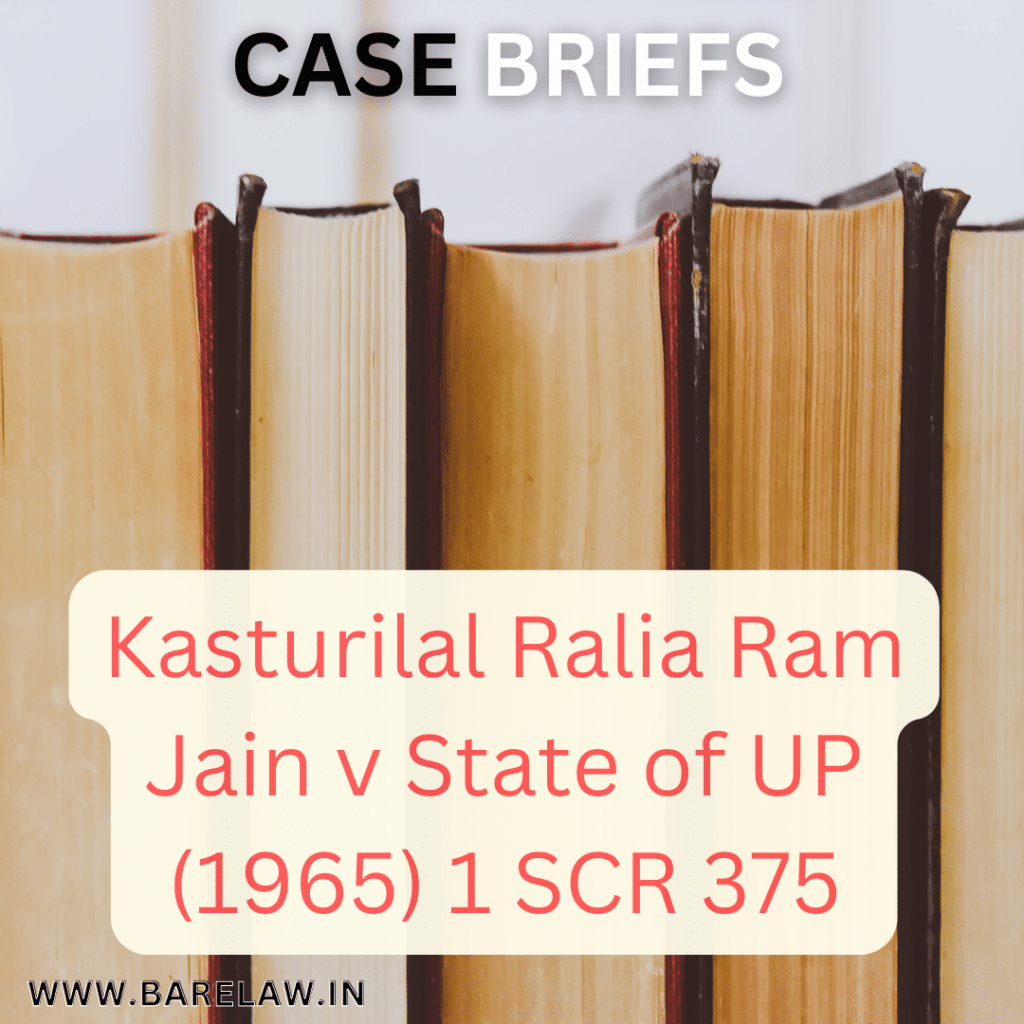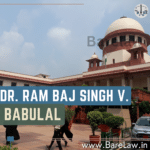
Kasturilal Ralia Ram Jain v State of UP (1965) 1 SCR 375
Kasturilal Ralia Ram Jain v. State of U. P. is a landmark case in Indian contract law, which dealt with the concept of “unconscionable contracts”. The case was decided by a five-judge bench of the Supreme Court of India in 1964.
Facts:
The appellants, Kasturilal Ralia Ram Jain, were moneylenders who had advanced a loan of Rs. 10,000 to the respondent, the State of Uttar Pradesh, for the purchase of certain goods. The loan was secured by a bond executed by the respondent in favor of the appellants, which provided for an interest rate of 6.25% per month, and also contained a clause allowing the appellants to recover the entire loan amount in case of default.
The respondent defaulted on the payment of the loan, and the appellants filed a suit for recovery of the loan amount, along with interest and costs.
Issue:
The main issue before the court was whether the bond executed by the respondent in favor of the appellants was an unconscionable contract, and hence unenforceable.
Judgment:
The court held that the bond executed by the respondent was an unconscionable contract, as it was grossly unfair and unreasonable, and took advantage of the respondent’s position of weakness. The court observed that the interest rate of 6.25% per month was exorbitant and unconscionable, and that the clause allowing the appellants to recover the entire loan amount in case of default was also highly unfair and unreasonable.
The court held that such contracts are against public policy and are unenforceable. The court also observed that it is the duty of the courts to strike down such unconscionable contracts, which are oppressive and exploit the weaker sections of society.
The court, therefore, declared the bond executed by the respondent in favor of the appellants as unenforceable, and dismissed the suit filed by the appellants for recovery of the loan amount, interest, and costs.
Significance:
The case of Kasturilal Ralia Ram Jain v. State of U. P. is significant as it established the concept of unconscionable contracts in Indian contract law. It laid down that contracts which are unconscionable, grossly unfair, and oppressive, and which take advantage of the weaker party, are against public policy and are unenforceable. This case serves as a valuable precedent for the protection of consumers against the exploitation by stronger parties, and reinforces the principle of fairness and reasonableness in contracts.
Summary:
The decision in Kasturilal Ralia Ram Jain v. State of U. P. was that the bond executed by the respondent in favor of the appellants was an unconscionable contract and hence unenforceable. The court held that such contracts are against public policy and are unenforceable.
The court also observed that it is the duty of the courts to strike down such unconscionable contracts, which are oppressive and exploit the weaker sections of society.
Therefore, the court declared the bond executed by the respondent in favor of the appellants as unenforceable, and dismissed the suit filed by the appellants for recovery of the loan amount, interest, and costs.
This decision established the concept of unconscionable contracts in Indian contract law and serves as a valuable precedent for the protection of consumers against the exploitation by stronger parties.





